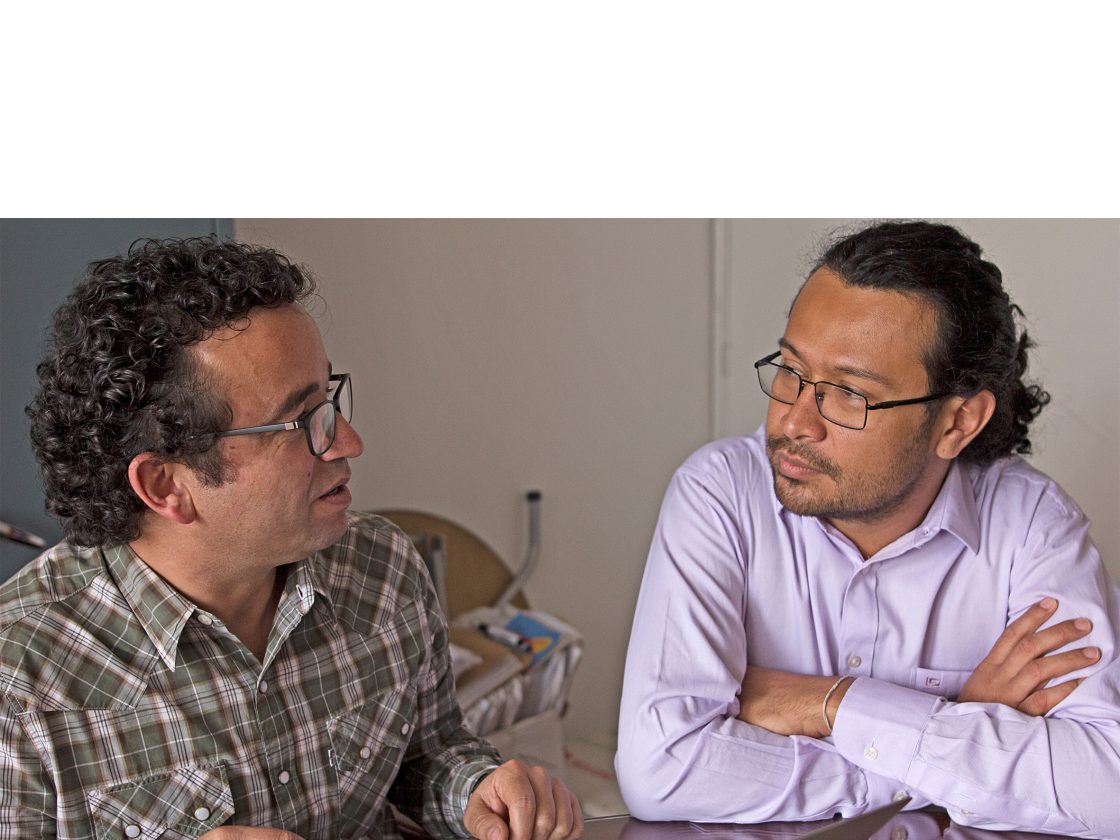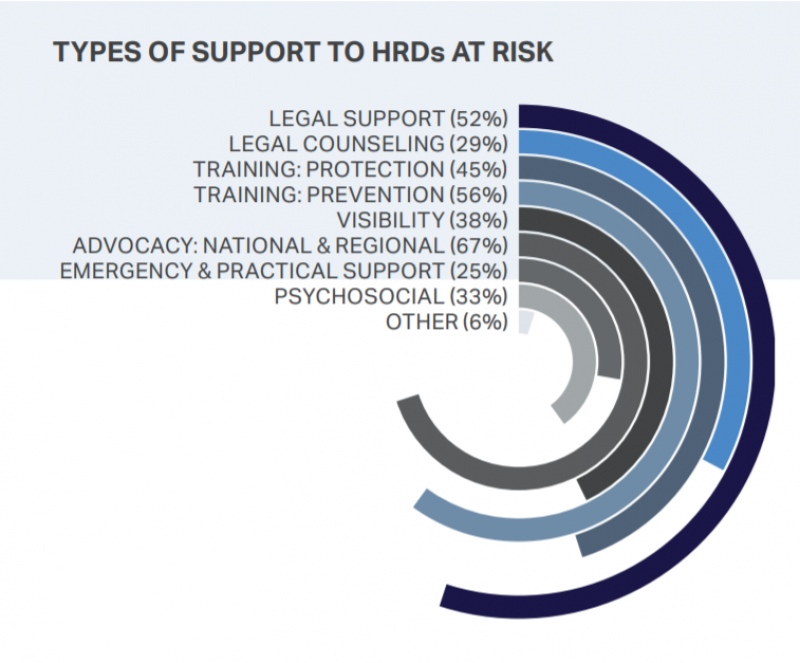The NHRF supports projects working for the protection of human rights defenders at risk. Project applications for this thematic area are assessed independently from the NHRF's geographical priorities, but applications from our priority countries are also welcome. In 2019 the NHRF supported 21 active HRDs at Risk projects with a specific focus on better working conditions and protection of human rights defenders. The 21 projects were located in 4 of our priority countries, 7 non-priority countries, and 5 were global/regional initiatives.
In addition to our priority country support, the NHRF started supporting initiatives that helped us build a programme for the protection of human rights defenders at risk in the 2013-2015 period. The june 2016 report gives an overview of the efforts supported, visualizes to what extent we fulfilled the aim of the strategy to this programmatic support, and gives insight as to what may be ahead for the NHRF’s support of HRDs. In 2018, we conducted an internal assessment of our implementation of our 2016-2020 strategy that builds on the 2016 report and helps us further understand the trends in programmatic needs for HRD initiatives.
Human rights defenders have always been integral to the NHRF vision. Since the NHRF’s inception in 1988, our goal has been to act as a flexible, risk-willing, and responsive contributor to human rights defenders working in the frontline of defence for human rights. Our early support has evolved into a focus on the working conditions for supported human rights organisations and defenders by: working closer with more organisations specialising in security; creating "Guidelines on Security and Protection for Grantees in the Field", and providing capacity building and additional funds, so grantees can address their security issues while undertaking their work.



